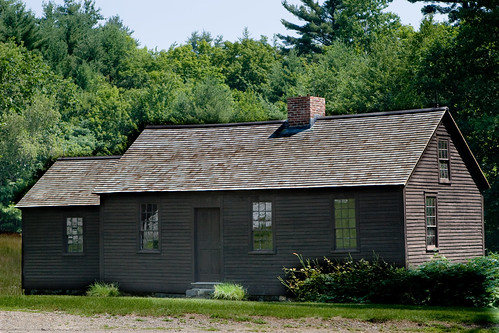Daniel Webster
Daniel Webster, b. Salisbury, N.H., Jan. 18, 1782, d. Oct. 24, 1852, statesman, lawyer, and orator, was his era's foremost advocate of American nationalism. A farmer's son, he graduated from Dartmouth College in 1801. After a legal apprenticeship, Webster opened a legal practice in Portsmouth, N.H., in 1807.
Rising quickly as a lawyer and Federalist party leader, Webster was elected (1812) to the U.S. House of Representatives because of his opposition to the War of 1812, which had crippled New England's shipping trade. After two more terms in the House, Webster left Congress in 1816 and moved to Boston. Over the next six years, he won major constitutional cases before the Supreme Court (most notably, DARTMOUTH COLLEGE V. WOODWARD, GIBBONS V. OGDEN, and MCCULLOCH V. MARYLAND), establishing himself as the nation's leading lawyer and an outstand outstanding orator. In 1823, Webster was returned to Congress from Boston, and in 1827 he was elected senator from Massachusetts.
New circumstances enabled Webster to become a champion of American nationalism. With the Federalist party dead, he joined the National Republican party, allying himself with Westerner Henry CLAY and endorsing federal aid for roads in the West. In 1828, the dominant economic interests of Massachusetts having shifted from shipping to manufacturing, Webster backed the high-tariff bill of that year. Angry Southern leaders condemned the tariff, and South Carolina's John C. CALHOUN argued that his state had the right to nullify the law. Replying to South Carolina's Robert HAYNE in a Senate debate in 1830, Webster triumphantly defended the Union. His words "Liberty and Union, now and forever, one and inseparable!" won wide acclaim.
Webster and President Andrew Jackson joined forces in 1833 to suppress South Carolina's attempt to nullify the tariff. But Webster and other opponents of Jackson--now known as Whigs (see WHIG PARTY, United States)--battled him on other issues, including his attack on the National Bank. Webster ran for the presidency in 1836 as one of three Whig party candidates but carried only Massachusetts. For the remainder of his career he aspired vainly to the presidency.
In 1841, President William Henry Harrison named Webster secretary of state. The death of Harrison (April 1841) brought John Tyler to the presidency, and in September 1841 all the Whigs but Webster resigned from the cabinet. Webster remained to settle a dispute with Great Britain involving the Maine-Canada boundary and successfully concluded the WEBSTER-ASHBURTON TREATY (1842). Whig pressure finally induced Webster to leave the cabinet in May 1843.
The annexation of Texas in 1845 and the resulting war with Mexico, both opposed by Webster, forced the country to face the issue of the expansion of slavery. Webster opposed such expansion but feared even more a dissolution of the Union over the dispute. In a powerful speech before the Senate on Mar. 7, 1850, he supported the COMPROMISE OF 1850, denouncing Southern threats of secession but urging Northern support for a stronger law for the recovery of fugitive slaves. Webster was named secretary of state in July 1850 by President Millard Fillmore and supervised the strict enforcement of the Fugitive Slave Act. Webster's stand alienated antislavery forces and divided the Whig party, but it helped to preserve the Union.
More from Wikipedia...
Photos taken in and around the state of New Hampshire
from the NH Flickr Group.
Come move with us to our new domain!
nhphototour.com
Tuesday, July 29, 2008
Daniel Webster Birthplace
Subscribe to:
Post Comments (Atom)

No comments:
Post a Comment